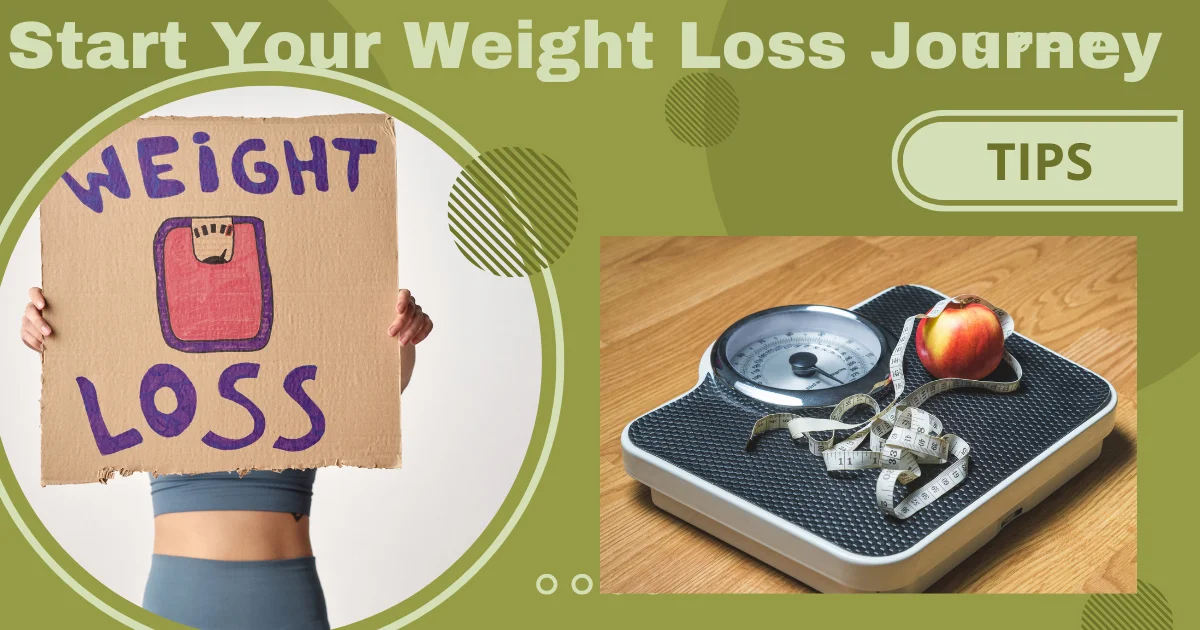Start your weight loss journey
Weight loss is a topic that concerns many people around the world, and it refers to the process of reducing body weight by burning more calories than you consume. Losing weight can be beneficial for your overall health, as it can reduce the risk of developing various health conditions, such as heart disease, type 2 diabetes, and certain types of cancer.
One of the most common reasons people try to lose weight is to improve their physical appearance and boost their self-esteem. However, it’s important to keep in mind that healthy weight loss is not just about looking good, but also about feeling good and improving your quality of life.
There are many ways to lose weight, such as following a healthy diet, increasing physical activity, and reducing sedentary behavior. It’s important to choose a weight loss strategy that works best for you and fits your lifestyle.
It’s worth noting that weight loss can be challenging, and it’s important to set realistic goals and expectations. Losing weight too quickly can be harmful to your health, so it’s important to aim for a gradual and steady weight loss.
In this article, we will explore various aspects of weight loss, including the benefits of losing weight, different weight loss strategies, and tips for successful weight loss. Whether you’re looking to shed a few pounds or embark on a significant weight loss journey, this article will provide you with the information and tools you need to achieve your goals.

Causes of Weight Gain
Here are some common causes of weight gain explained in simple terms:
1.Overeating: Eating too much food, especially high-calorie junk food, can lead to weight gain.
2.Sedentary lifestyle: Lack of physical activity can cause weight gain as the body burns fewer calories when it is inactive.
3.Genetics: Some people may be predisposed to weight gain due to their genetics, which can affect metabolism, appetite, and fat storage.
4.Medical conditions: Certain medical conditions such as hypothyroidism, Cushing’s syndrome, and insulin resistance can cause weight gain.
5.Medications: Certain medications such as antidepressants, corticosteroids, and antipsychotics can cause weight gain as a side effect.
6.Age: As we age, our metabolism slows down, and we tend to lose muscle mass, which can cause weight gain.
7.Emotional eating: Many people eat in response to emotions such as stress, sadness, or boredom, which can lead to overeating and weight gain.
8.Poor sleep: Lack of sleep or poor-quality sleep can disrupt hormones that regulate hunger and appetite, leading to overeating and weight gain.
9.Drinking sugary drinks: Drinking sugary drinks such as soda, energy drinks, and fruit juices can cause weight gain due to their high calorie content.
10.Eating out frequently: Eating out frequently can lead to consuming more calories than you need, as restaurant meals are often high in calories, fat, and sodium.
You may also likeWhat Should I Eat to Lose 10 Pounds in a Month? A Comprehensive Guide to Healthy Eating for Weight Loss 20 best Tips for Weight Loss What Order to Apply Skincare: A Comprehensive Guide
Benefits of Weight Loss
Losing weight can bring a range of benefits to your overall health and wellbeing. Here are some of the potential benefits of weight
loss:
1.Reduced risk of chronic diseases: Excess weight and obesity are major risk factors for many chronic diseases such as type 2 diabetes, heart disease, stroke, and certain types of cancer. Losing weight can help reduce the risk of developing these conditions or improve their management.
2.Improved heart health: Losing weight can help reduce blood pressure, cholesterol levels, and the risk of heart disease. This is especially important for individuals with a family history of heart disease.
3.Improved joint health: Carrying excess weight puts additional pressure on joints such as the knees, hips, and ankles, which can lead to pain and discomfort. Losing weight can reduce this pressure and improve joint health.
4.Improved sleep: Excess weight is associated with sleep apnea and other sleep disorders. Losing weight can help improve the quality of sleep and reduce the risk of these conditions.
5.Improved mental health: Losing weight can improve self-esteem and body image, leading to improved mental health. Exercise and physical activity have also been shown to reduce symptoms of anxiety and depression.
6.Increased energy and stamina: Carrying excess weight can lead to fatigue and reduced energy levels. Losing weight can increase energy levels and stamina, making it easier to perform daily activities and exercise.
7.Improved fertility: Excess weight can contribute to infertility in both men and women. Losing weight can improve fertility and increase the chances of a successful pregnancy.
8.Improved digestion: Losing weight can help improve digestion and reduce symptoms of gastrointestinal disorders such as acid reflux, bloating, and constipation.
9.Improved immune function: Losing weight can improve immune function by reducing inflammation and improving the body’s ability to fight off infections and illnesses.
10.Reduced risk of dementia: Excess weight can increase the risk of dementia and cognitive decline. Losing weight can reduce this risk.
11.Improved mobility: Losing weight can improve mobility and make it easier to perform daily activities such as climbing stairs, walking, and carrying groceries.
12.Improved longevity: Studies have shown that losing weight can increase lifespan and reduce the risk of premature death.
A balanced diet, regular physical activity, and a healthy lifestyle are key to achieving and maintaining weight loss. If you’re considering weight loss, it’s always best to consult with a healthcare professional who can help you develop a safe and effective weight loss plan.
Side Effects of Excess Weight Loss
While weight loss is generally associated with a range of health benefits, losing weight too quickly or in an unhealthy way can lead to a variety of negative side effects. Here are some potential side effects of excess weight loss:
1.Nutrient deficiencies: Rapid weight loss can lead to nutrient deficiencies, as the body may not be getting enough vitamins and minerals from the limited food intake. This can lead to a range of health problems, including fatigue, weakness, and hair loss.
2.Gallstones: Rapid weight loss can increase the risk of developing gallstones, which can cause abdominal pain and discomfort.
3.Muscle loss: Losing weight too quickly can lead to muscle loss, which can reduce overall strength and make it harder to perform daily activities and exercise.
4.Loose skin: Rapid weight loss can lead to loose or sagging skin, which can be difficult to manage and may require cosmetic procedures to correct.
5.Hair loss: Rapid weight loss can lead to hair loss, which can be a result of nutrient deficiencies or hormonal changes in the body.
6.Irregular periods: Rapid weight loss can disrupt hormonal balance in the body, leading to irregular periods or even the cessation of menstruation.
7.Fatigue: Rapid weight loss can lead to feelings of fatigue and lethargy, as the body may not be getting enough calories or nutrients to sustain energy levels.
8.Mood changes: Rapid weight loss can lead to mood changes such as irritability, depression, and anxiety, as the body may be under stress from the sudden change in calorie intake.
9.Increased risk of infection: Rapid weight loss can weaken the immune system, increasing the risk of infections and illnesses.
10.Slowed metabolism: Losing weight too quickly can lead to a slowed metabolism, which can make it harder to continue losing weight and maintain weight loss over time.
It’s important to note that the side effects of excess weight loss can vary depending on individual circumstances, such as age, sex, and overall health. Additionally, losing weight in a healthy and sustainable way can help to minimize the risk of negative side effects. Consulting with a healthcare professional or registered dietitian can provide guidance on safe and effective weight loss strategies and help develop a plan that works for you.
In general, it’s important to focus on sustainable lifestyle changes such as a healthy diet and regular exercise in order to achieve weight loss in a healthy and sustainable way. Gradual weight loss of 1-2 pounds per week is generally considered safe and effective, and can help to minimize the risk of negative side effects. Additionally, incorporating strength training exercises can help to preserve muscle mass and reduce the risk of muscle loss during weight loss.
Best diets for Weight Loss
There are numerous diets that claim to be effective for weight loss, and choosing the right one can be overwhelming. Here are some popular diets for weight loss, along with their benefits and limitations:
1.Low-carb diets: Low-carb diets, such as the ketogenic diet and Atkins diet, limit the intake of carbohydrates and promote the consumption of protein and healthy fats. These diets are effective for weight loss, as they promote the body’s use of fat as a source of energy. However, they can be difficult to sustain long-term and may lead to nutrient deficiencies if not followed properly.
2.Low-fat diets: Low-fat diets focus on reducing the intake of fat and increasing the intake of carbohydrates and protein. These diets can be effective for weight loss, but may not be sustainable in the long term, as they can lead to hunger and cravings. Additionally, not all fats are created equal, and some healthy fats, such as those found in nuts, seeds, and avocados, can actually promote weight loss.
3.Mediterranean diet: The Mediterranean diet focuses on whole, minimally processed foods, such as fruits, vegetables, whole grains, legumes, nuts, seeds, and healthy fats like olive oil and fish. This diet has been shown to be effective for weight loss and has numerous health benefits, including improved heart health and reduced risk of chronic diseases.
4.Intermittent fasting: Intermittent fasting involves limiting food intake to specific times of the day or week. Popular forms of intermittent fasting include the 16/8 method, where you fast for 16 hours and eat during an 8-hour window, and the 5:2 diet, where you eat normally for 5 days and restrict calorie intake to 500-600 calories for 2 days. Intermittent fasting can be effective for weight loss and may have additional health benefits such as improved insulin sensitivity and reduced inflammation.
5.Plant-based diets: Plant-based diets focus on consuming foods derived from plants, such as fruits, vegetables, legumes, whole grains, and nuts. These diets are often low in calories and high in fiber, which can promote weight loss. Additionally, plant-based diets have been shown to have numerous health benefits, including improved heart health and reduced risk of chronic diseases.
It’s important to note that no single diet works for everyone, and finding the right diet for you may involve trial and error. Additionally, sustainable weight loss is about more than just diet – it involves a combination of healthy eating habits, regular physical activity, and lifestyle changes.
Before starting any diet, it’s always best to consult with a healthcare professional who can help you determine the best approach for your individual needs and goals.
20 Tips for Weight Loss
Best Exercise for Weight Loss
Exercise is an important component of weight loss, as it helps to burn calories and improve overall health. Here are some of the best exercises for weight loss, along with their benefits and limitations:
1.Cardiovascular exercise: Cardiovascular exercise, such as running, cycling, or swimming, is one of the most effective forms of exercise for weight loss. These exercises increase heart rate and burn a significant amount of calories. However, cardio exercise alone may not be enough for sustainable weight loss, as it doesn’t promote muscle growth or strength.
2.Strength training: Strength training involves using weights or resistance to build muscle and increase strength. While strength training may not burn as many calories as cardio exercise, it has numerous benefits for weight loss. Building muscle can increase metabolism, leading to increased calorie burning even at rest. Additionally, strength training can improve overall body composition, leading to a healthier body fat percentage.
3.High-intensity interval training (HIIT): HIIT involves short bursts of intense exercise followed by periods of rest or lower-intensity exercise. This type of exercise can burn a significant amount of calories in a short amount of time and can also promote muscle growth and strength. However, HIIT can be challenging and may not be suitable for individuals with certain health conditions.
4.Yoga: While yoga may not burn as many calories as other forms of exercise, it can be effective for weight loss in other ways. Yoga can improve flexibility, balance, and overall body composition, leading to a healthier body fat percentage. Additionally, yoga has been shown to reduce stress, which can contribute to weight gain.
5.Walking: Walking is a low-impact exercise that can be effective for weight loss, especially for beginners or individuals with mobility issues. Walking can be done anywhere and at any time, making it an accessible form of exercise. While walking may not burn as many calories as other forms of exercise, it can still be effective for weight loss when combined with a healthy diet.
It’s worth noting that the best exercise for weight loss will vary depending on individual goals, preferences, and physical abilities. The key to sustainable weight loss is to find an exercise routine that is enjoyable, challenging, and sustainable in the long term.Additionally, exercise alone may not be enough for sustainable weight loss – it’s important to also focus on healthy eating habits and lifestyle changes. Incorporating a combination of cardio exercise, strength training, and other forms of physical activity into a well-rounded exercise routine can be effective for weight loss and overall health.
Before starting any exercise routine, it’s important to consult with a healthcare professional to determine the best approach for your individual needs and goals.
21 days Weight Loss challange
A 21-day weight loss challenge is a short-term program designed to kickstart weight loss and establish healthy habits. Here are some tips for a successful 21-day weight loss challenge:
1.Set specific goals: Before starting the challenge, set specific goals for weight loss and other health-related outcomes. This will help to keep you motivated and focused throughout the challenge.
2.Create a meal plan: Plan out healthy meals and snacks for each day of the challenge. This can help to prevent unhealthy eating habits and keep you on track with your calorie goals.
3.Exercise daily: Incorporate at least 30 minutes of exercise into your daily routine, whether it’s cardio exercise, strength training, or other forms of physical activity. This can help to burn calories and improve overall health.
4.Stay hydrated: Drink plenty of water throughout the day to stay hydrated and avoid overeating.
5.Get enough sleep: Aim for at least 7-8 hours of sleep per night to reduce stress and improve overall health.
6.Avoid processed foods: Avoid processed and high-sugar foods, which can contribute to weight gain and other health issues.
7.Keep a food journal: Track your food intake and exercise in a journal or app to help stay accountable and identify areas for improvement.
Remember that sustainable weight loss is about more than just a 21-day challenge – it involves making long-term lifestyle changes. Use the challenge as a starting point to establish healthy habits, and continue to build upon these habits even after the challenge is over.
It’s important to consult with a healthcare professional before starting any weight loss program, especially if you have any underlying health conditions.
Weight Loss Motivation
Maintaining motivation can be a challenge when it comes to weight loss, but it’s important to stay focused and committed in order to achieve your goals. Here are some tips for staying motivated during a weight loss journey:
1.Set realistic goals: Setting realistic, achievable goals can help to keep you motivated and prevent feelings of discouragement. Break your goals down into smaller, manageable steps and celebrate your progress along the way.
2.Find a support system: Surround yourself with a supportive network of friends, family, or a weight loss support group. Having others to share your journey with can help to keep you motivated and accountable.
3.Keep track of progress: Use a tracking system to monitor your progress, such as a food diary or exercise log. Seeing progress on paper can help to keep you motivated and on track.
4.Focus on non-scale victories: Weight loss is not just about the number on the scale. Celebrate non-scale victories such as increased energy, improved sleep, or fitting into smaller clothing sizes.
5.Reward yourself: Set up a system of rewards for meeting your goals, such as a new piece of workout equipment or a massage. This can help to keep you motivated and give you something to look forward to.
6.Visualize success: Take time to visualize yourself achieving your goals and living a healthier, happier life. This can help to keep you motivated and focused on your long-term goals.
7.Practice self-care: Take care of your mental and emotional health through self-care activities such as meditation, yoga, or time with loved ones. This can help to reduce stress and increase motivation.
Remember that motivation can ebb and flow throughout a weight loss journey, and that’s okay. Use these tips to stay motivated during the tough times and celebrate your successes along the way.
Weight Loss Supplements
Weight loss supplements are products that are marketed as helping to promote weight loss. However, it’s important to note that there is limited scientific evidence to support the effectiveness and safety of many weight loss supplements. Additionally, some weight loss supplements can have harmful side effects or interact with other medications.
Benefits of Weight Loss supplements
Weight loss supplements are marketed as products that can help with weight loss, but it’s important to note that their safety and effectiveness have not been fully studied or approved by the FDA. While there may be some benefits to using weight loss supplements, it’s important to be cautious and consult with a healthcare professional before using them.
Here are some potential benefits of weight loss supplements:
1.Appetite suppression: Some weight loss supplements contain ingredients that can help to suppress appetite, which can make it easier to stick to a calorie-restricted diet.
2.Increased metabolism: Some weight loss supplements contain ingredients that can increase metabolism, which can lead to more calories burned throughout the day.
3.Increased energy: Some weight loss supplements contain stimulants such as caffeine, which can provide a boost of energy.
4.Convenience: Weight loss supplements are often available in pill or powder form, making them a convenient option for people who have a busy lifestyle.
It’s important to note that the effectiveness and safety of many weight loss supplements have not been fully studied. Additionally, some weight loss supplements can have harmful side effects or interact with other medications. Therefore, it’s important to consult with a healthcare professional before using any weight loss supplement, especially if you have underlying health conditions or are taking other medications. In general, it’s best to focus on a healthy diet and exercise plan as the most effective way to promote weight loss and overall health.
Side Effects of Weight Loss Supplements
Weight loss supplements are marketed to help with weight loss, but they can also have potential side effects. It’s important to note that the safety and effectiveness of many weight loss supplements have not been fully studied or approved by the FDA.
Here are some potential side effects of weight loss supplements:
1.Digestive issues: Many weight loss supplements contain ingredients that can cause digestive issues such as nausea, vomiting, diarrhea, and constipation.
2.Heart issues: Some weight loss supplements contain stimulants such as caffeine, which can increase heart rate and blood pressure. This can be dangerous for people with heart conditions.
3.Liver damage: Some weight loss supplements, such as green tea extract, have been linked to liver damage.
4.Anxiety and insomnia: Stimulants such as caffeine and ephedra can cause anxiety and insomnia.
5.Interactions with medications: Some weight loss supplements can interact with medications, including prescription medications and over-the-counter drugs.
6.Dehydration: Some weight loss supplements can have a diuretic effect, causing dehydration.
It’s important to consult with a healthcare professional before using any weight loss supplement, especially if you have underlying health conditions or are taking other medications. A healthcare professional can help to determine if a weight loss supplement is appropriate for you and provide guidance on safe and effective weight loss strategies. In general, it’s best to focus on a healthy diet and exercise plan as the most effective way to promote weight loss and overall health.
Conclusion
In conclusion, weight loss can provide numerous health benefits, including improved heart health, decreased risk of chronic disease, improved joint health, and increased self-confidence. However, it’s important to approach weight loss in a safe and healthy way in order to avoid potential negative side effects. This may include incorporating a balanced and nutritious diet, engaging in regular physical activity, and seeking guidance from a healthcare professional or registered dietitian.
Sustainable lifestyle changes, rather than quick fixes or fad diets, can help individuals achieve weight loss goals in a healthy and sustainable way. By focusing on gradual progress and sustainable habits, weight loss can be a positive and empowering experience that can lead to improved health and well-being.
Disclaimer: The advice and suggestions mentioned in the article are for general information purpose only and it should not be taken as professional medical advice. Always consult your doctor if you have any questions or concerns.
FAQ
What are the causes of weight gain ?
Weight gain can be caused by consuming more calories than your body burns through physical activity and metabolic processes. Certain medications, medical conditions, and lifestyle factors such as lack of sleep and high stress levels can also contribute to weight gain.
What are the benefits of weight loss ?
Weight loss can improve overall health by reducing the risk of chronic diseases such as heart disease, diabetes, and certain cancers. It can also lead to increased energy, improved mobility, and a boost in self-confidence.
What are the side effects of excess weight loss ?
Common side effects of weight loss include fatigue, headaches, and irritability due to changes in hormone levels, as well as the potential for nutrient deficiencies if calorie intake is too low or dietary restrictions are too severe. It's important to lose weight in a healthy and sustainable manner to minimize these side effects.
Which drink is best for weight loss?
Water is the best drink for weight loss as it contains zero calories and helps keep the body hydrated. Green tea and black coffee can also be helpful for weight loss due to their ability to boost metabolism and increase fat burning when consumed in moderation as part of a balanced diet and lifestyle.
How can I lose belly fat without exercise?
Losing belly fat without exercise is possible by focusing on a healthy and balanced diet, reducing stress levels, getting enough sleep, and staying hydrated. However, regular exercise is still recommended as part of a healthy lifestyle for optimal health and weight management.
How do I lose my weight quickly ?
Rapid weight loss is not recommended for optimal health and long-term weight management. To effectively and safely lose weight, focus on making sustainable lifestyle changes such as a healthy diet, regular exercise, stress management, and adequate sleep.
How to lose belly fat?
To lose belly fat, focus on a healthy and balanced diet, regular exercise, stress management, and adequate sleep. Incorporating specific exercises such as planks, crunches, and HIIT workouts can also be helpful in targeting belly fat.
Does hot water burn belly fat?
There is no scientific evidence to support the claim that hot water alone can burn belly fat. However, staying hydrated with water, whether hot or cold, can be helpful for weight management and overall health.



